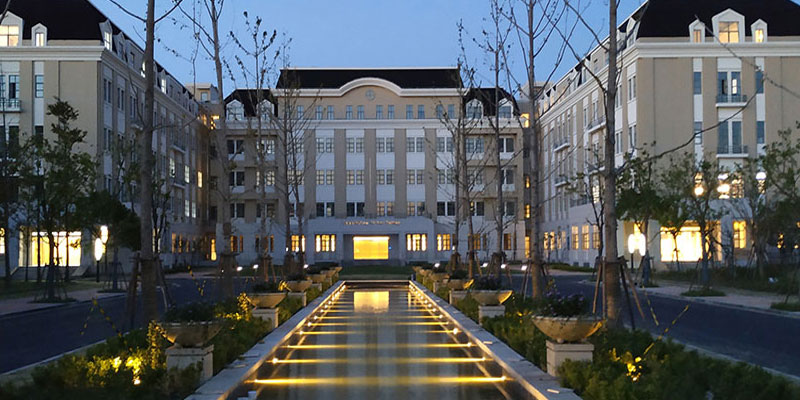海外学生科研实习基地
项目一 Research on the Coordinated Control of SOFC/GT Hybrid System Based on Safety Margin
Contact: Assistant Professor. Xiaojing Lv
Email: lvxiaojing@sjtu.edu.cn
Project Description and Objectives
Solid Oxide Fuel Cell/Gas Turbine (SOFC/GT) hybrid system has the advantages of high efficiency, low emission and fuel flexibility, which is one of the most important development directions of power generation technology in the future.
However, the safe and stable operation and high-performance control have always been the difficult technology question to restrict the development of hybrid system because of the complexity. Aiming at the above problems, this project intends to establish a dynamic mathematical model of SOFC/GT hybrid system with safe boundary, reveal the coupling mechanism of safety margin, operation characteristics, electrochemical reaction characteristics, develop an coordinated control method of performance indicators and multi-dimensional safety margin, and obtain the safe and efficient operation trajectory of the hybrid system from start-up to load regulation to shut-down.
The results will be beneficial for providing theoretical and experimental support and data base for the optimization design、safety warning setting, and efficient control strategy formulation of hybrid system, which have vital theoretical significance and practical value for promoting the process development of hybrid system from theory research to actual application.
Eligibility Requirements
Knowledge of laboratory safety should be mastered.
Basic knowledge/coursework in advanced energy system, thermodynamics, or electrochemistry engineering.
Students who have experiences in labs is preferred.
Main Tasks
Propose a new idea to improve the hybrid system performance based on the theory and experiment work.
Make a presentation of the simulation or experimental study.
Complete a final report of this program.
项目二 Preparation of Biodegradable Plastics from Waste Shells
Contact: Assistant Prof. Xi Chen
Email: chenxi-lcc@sjtu.edu.cn
Project Description and Objectives
Waste resources utilization is a pivotal topic for the sustainable development of the society to promote carbon circulation and reduce carbon emission. “Waste-to-wealth” is the idea to transform the waste materials generated in industrial activities or our daily life into valuable products such as chemicals, materials, etc. This internship program focuses on the manufacturing of biodegradable plastics and other value-added chemicals from waste crab/shrimp shells or woody biomass such as wheat straws. Some tools may be applied to solve problems in the projects mainly including catalytic techniques and simple machine learning skills to deal with the data. The objectives are to reinforce the awareness of the students on waste utilization, equip them with some frontier techniques to change the waste into useful products and enable them to command basic skills in experimental design, data processing, critical thinking, etc., so that they can contribute in relevant fields in the future to protect the environment and mitigate carbon emission.
Eligibility Requirements
Have relevant backgrounds (Environment, Chemistry, Engineering, etc.).
Main Tasks
Establish a feasible process to transform waste shell-derived chitosan into biodegradable plastic bags with good properties.
项目三 Performance Enhancement of a Novel CO2 based Refrigerating System Using Nano-coated Heat Pipes
Contact: Asso.Prof. Yanping Du
Email: yanping.du@sjtu.edu.cn
Project Description and Objectives
Refrigerating systems in the current market suffers from restrains with a bottleneck of low coefficient of performance (COP) due to the inefficient heat transfer ability resulted from conventional cooling strategies adopted in the systems. On the other hand, the conventional refrigerants used have severely negative influence on the ozonosphere (O3) of the earth, which urgently needs to be substituted. In this regard, the research team led by Dr. Du developed a nano-coated heat pipe for an enhanced heat transfer and used carbon dioxide (CO2) as the substitute, aiming to improve the cooling as well as the wicking in the condenser and the evaporator, respectively. Thermodynamic properties of different refrigerants including R22, R410a and CO2 are to be tested, based on which, the cooling effectiveness will be evaluated using the principle of energy conversation. The variation of the refrigerating capacity need to be calculated in corresponding scenarios. A special focus will be given on the comparison of the systematic COP using dominant compressors that have big difference in cost. In overall, the project is towards a highly-efficient, low-cost and environment-friendly product leading to a green and sustainable future.
Eligibility Requirements
Proficient English skills
Major in Energy and Power Engineering or relevant subjects
Proactive, responsible and easy to be along with
Main Tasks
- Experimental system construction
- Experiments implementation to obtain the thermodynamic properties of different refrigerants including R22, R410a and CO2
- Evaluation of the refrigerating capacity, power consumption and COP under different conditions
- Simulation using ANSYS should be done to compare with experiments
- Final report to be submitted before ending of the research program.




 友情链接 ---
友情链接 ---